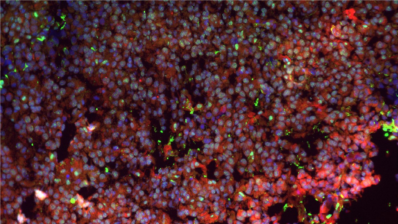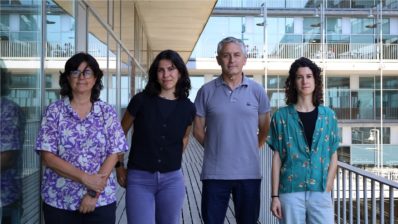The European eTRANSAFE project (Enhancing TRANslational SAFEty Assessment through Integrative Knowledge Management), a pioneering initiative aimed at sharing comprehensive data on the safety of medicines, has successfully reached its culmination after six years.
Spearheaded by UPF professor Ferran Sanz this collaborative effort has involved multiple stakeholders including pharmaceutical companies and academic institutions such as the GRIB. The project has achieved a remarkable integration of information. Following on the steps of the previous project eTOX, over 10,000 pharmacological studies conducted by renowned pharmaceutical firms have been amalgamated into a unified platform. This platform, called ToxHub, draws from an array of databases housing clinical and preclinical data from both public and private sources, and is a unique system where all project members can explore and exploit information on drug safety.
Another of the notable outcomes of the eTRANSAFE project is the development of an open-source machine learning application known as ‘Flame’. This innovative tool, designed for ease of use and accessibility, has the capability to predict potential adverse effects of future drugs, and can serve as a bridge between academia and the pharmaceutical industry, to refine drug development processes and enhance drug safety.
“With Flame, in a matter of minutes we can share a model developed at the university with a pharmaceutical company”
Manuel Pastor, GRIB-UPF
The importance and challenges of data sharing
Ferran Sanz, the driving force behind this endeavor, emphasizes the significance of data sharing, noting that while common in academia, it poses more challenges in the business sector. However, recognizing the importance of drug safety, the project not only facilitated data sharing but also fostered an environment where improved predictions regarding drug toxicity could be made.
Even the challenges of comparing results between animal studies and human trials were addressed, ‘translating’ animal behaviours to their human equivalents and leading to insights like the surprising revelation that rats can sometimes be more predictive than primates for example for skin reactions to a widely used cancer treatment.
eTRANSAFE has proved a successful collaboration between academia and industry, with its novel predictive tools and its emphasis on data sharing
The conclusion of the eTRANSAFE project marks a significant milestone in the field of pharmaceutical research and development. Its successful collaboration between academia and industry, its novel predictive tools, and its emphasis on data sharing underscore the potential of collective efforts to enhance drug safety and advance medical science.
TransSafe was funded with 40 million euros by the European initiative on innovative medicines (IMI), which receives 50% of funding from the European Union and 50% private funding. All the tools and the databases developed by eTRANSAFE will be permanently stored at UPF.
Sanz, F, et al., ‘eTRANSAFE: data science to empower translational safety assessment’. Nature Reviews Drug Discovery. June 2023. DOI: 10.1038/d41573-023-00099-5







